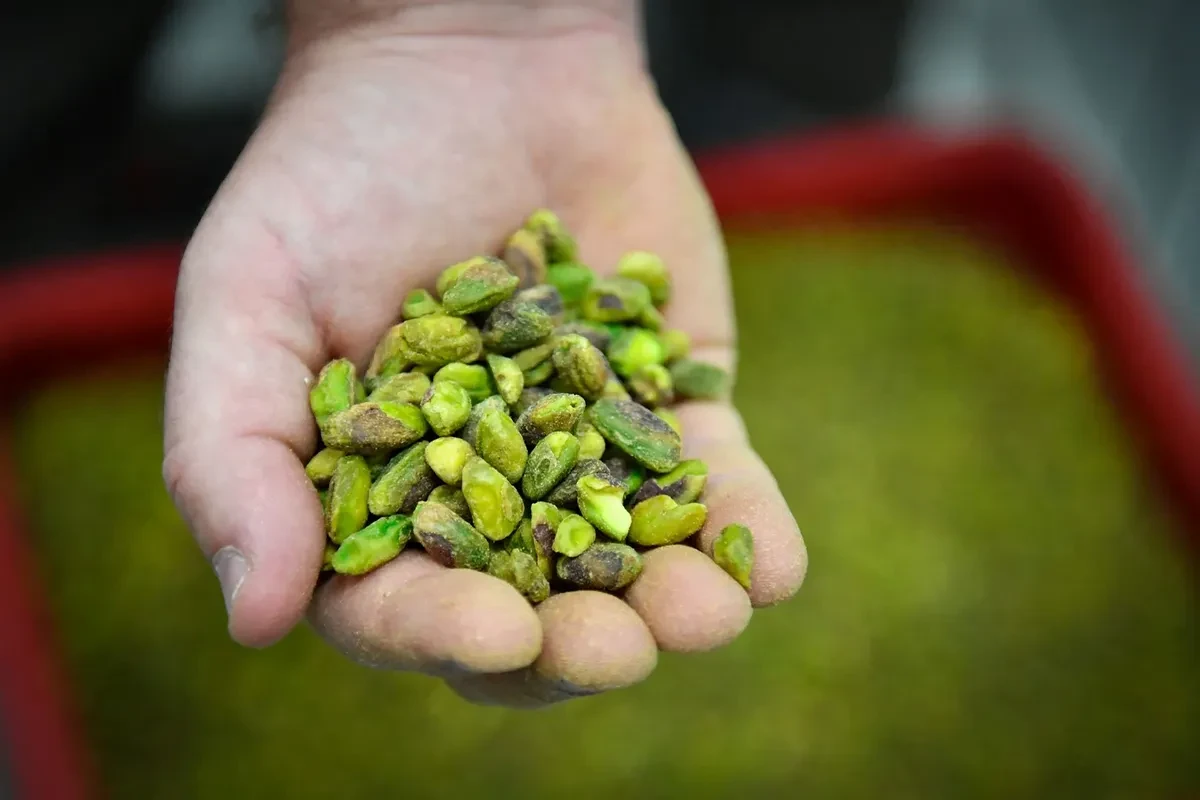Türkiye’s rising pistachio production fails to boost exports, exporters voice concerns
 Hand full of pistachios. (AFP Photo)
Hand full of pistachios. (AFP Photo)
Mehmet Cikmaz, head of the Southeastern Anatolian Exporters’ Association, raised concerns over increasing hoarding activities and high export prices for Antep pistachios.
He warned that these issues could compromise access to the European market.
Pistachio prices outpace global rates, threatening exports
In recent years, Antep pistachio prices have been significantly higher than global market rates, leading to widespread hoarding. As a result, exports are being undermined, with particular concern about losing the European market.
While the harvest of Antep pistachios was 53,000 tons in 2014, it increased to 500,000 tons in 2024. Experts predict that with the increasing number of pistachio trees, the harvest could reach 1 million tons in the next five years.
Despite the increased harvest, export figures have not risen, which raises concerns about the future of the industry.
Antep pistachio vital for southeastern economy
Antep pistachios contribute approximately $5.5 billion annually to the region’s economy, making it one of the most important agricultural products in the area.
Cikmaz, speaking to Dunya Newspaper from Türkiye, emphasized the efforts to visit relevant authorities and present solutions to preserve existing markets.
Speculators and stockpiling impacting market
Cikmaz pointed out that both large and small-scale speculators have become more interested in stockpiling pistachios, leading to price instability. As a result, pistachios, which can be stored for two to three years, sometimes flood the market, causing sudden price drops. In contrast, at other times, they are withheld, causing significant price hikes.
Cikmaz warned that the resulting price instability has weakened exporters’ confidence in Antep pistachios, delaying new investments, job creation, and promotional activities. As a consequence, the export share of Antep pistachios has remained stagnant at 10%, despite the rising harvest figures. If this trend continues, years of hard work may go to waste, and Antep pistachios may not receive the recognition they deserve.
Türkiye struggles to compete in global pistachio export market
Despite being the world’s second-largest producer of Antep pistachios, Türkiye has not been able to secure a place among the top five export countries recently.
Cikmaz emphasized that Türkiye’s pistachio prices are higher than global rates, leading to a shift in demand toward rival countries such as the U.S. and Iran.
Export boost in harvest season, but problems persist
Cikmaz highlighted a significant export increase of 94% between Aug. 1 and Oct. 31, compared to the same period last year, thanks to efforts to promote new products and generate demand.
However, improper storage and handling of pistachios by intermediaries led to excessive price hikes.
Urgent solutions needed to prevent losing markets
Cikmaz stressed the urgency of solving the problems that could lead to losing markets built over years of hard work. He suggested that the supply of Antep pistachios should be regulated to ensure continuous and balanced availability.
Moreover, in light of ongoing issues in domestic supply, Cikmaz proposed allowing the importation of raw pistachios under the Customs Union Processing Regime. This would help stabilize prices and increase export value, despite the high harvest levels.
Improper storage leading to bacterial growth
Cikmaz also highlighted that pistachios are being stored improperly. This, coupled with the high harvest, is contributing to inflation.
The pistachios, commonly used in products like baklava and chocolate, are seeing price hikes due to improper storage conditions, which also lead to bacterial growth. With the increasing number of pistachio processing businesses in rural areas, there has been a rise in microbiological bacteria, affecting the quality of the product.
As a result, international demand, built over years of hard work, is shifting to other producing countries with more stable prices and a reliable supply.



